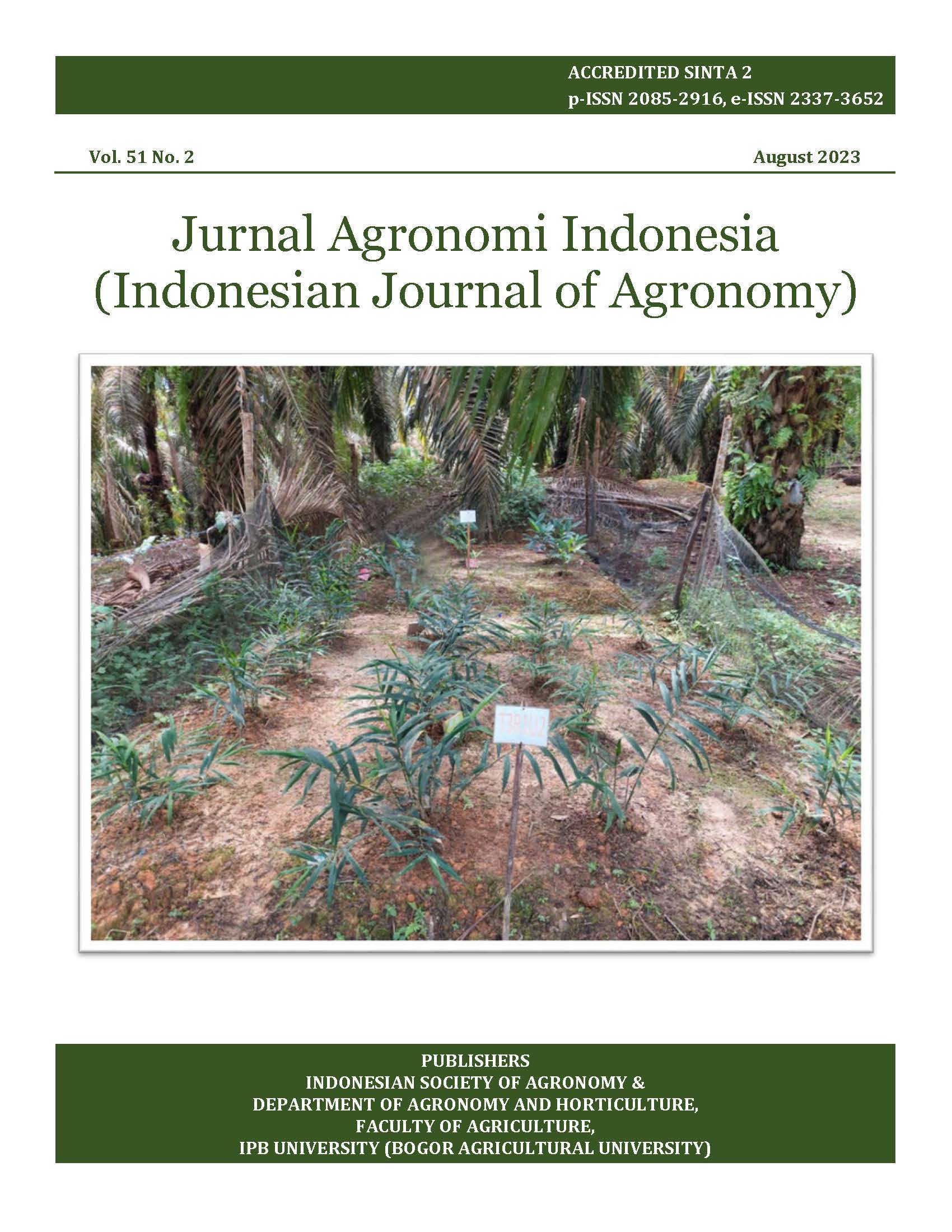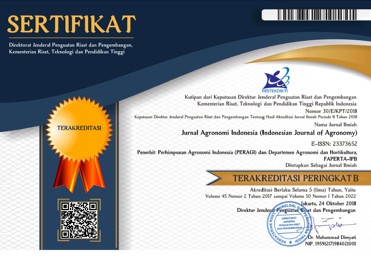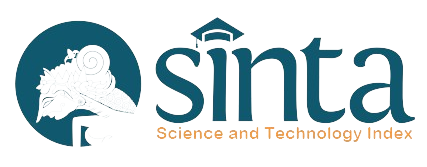Utilization of amelioration and bioremediation to reduce Al stress in upland rice “Inpago 12”
Abstract
The contribution of rice production in drylands (upland rice) to national rice production is still low, due to several limiting factors including limited water, low pH, and low soil fertility. This study aimed to obtain improved recommendations for amelioration and bioremediation in drylands with Al stress to enhance rice production. The upland rice variety of Inpago 12 was planted at Taman Bogo Experimental Farm, East Lampung in the first planting season of 2020. The experiment was arranged in a split-plot design with three replications. The main plot was the application of amelioration materials consisting of control (without amelioration), CaMg(CO3)2, CaCO3, and rock phosphate. The subplot was the application of bioremediation materials consisting of control (without bioremediation), biofertilizer, endophytic microbes, and citric acid. Results showed that amelioration and bioremediation on dry land with low to moderate Al stress and high Al stress did not significantly increase the growth of rice plants. However, bioremediation in the form of citric acid on land with low to moderate Al stress significantly increased grain production by 6.21% than without bioremediation.
Keywords: Aluminium, dryland, limited water, rice production, low soil fertility, low pH













